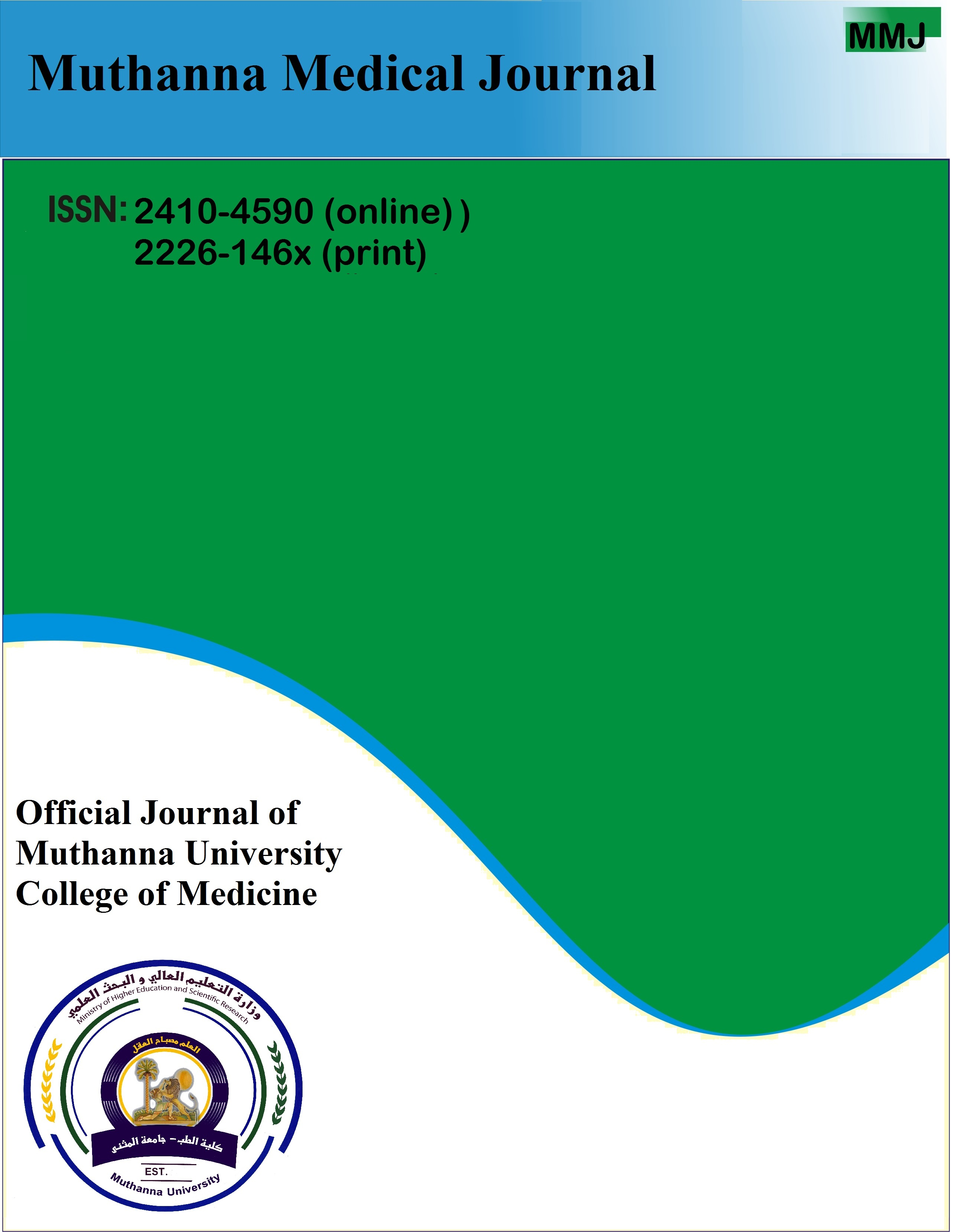Muthanna Medical Journal
Volume 10, Issue 1, 2023 Page 67-74
http://dx.doi.org/10.52113/1/1/2023-67-74
Haifaa B. Najee ¹, Shaimaa M.S. Zainulabdeen ¹, Iman A. Atiyah ²
Correspondence author: haifaa.najee@mu.edu.iq
¹ Department of Microbiology, College of Medicine, Al-Muthanna university
² Department of Medical laboratories College of Health and medical techniques, Sawa University
Received December 30, 2022; revised February 22, 2023; accepted March 01, 2023; published March 18, 2023.
Copyright © 2023 Haifaa B. Najee, et al. This is article distributed under the terms of the Creative Commons Attribution License http://creativecommons.org/licenses/by/4.0), which permits unrestricted use, distribution, and reproduction in any medium, provided the original work is properly cited
Copyright © 2023 Haifaa B. Najee, et al. This is article distributed under the terms of the Creative Commons Attribution License http://creativecommons.org/licenses/by/4.0), which permits unrestricted use, distribution, and reproduction in any medium, provided the original work is properly cited
Abstract
One of the most common cancers in both genders, gastric cancer is currently the fourth leading cause of cancer-related deaths globally. The interplay of hereditary and environmental variables, including Helicobacter pylori (H. pylori) infection, is linked to the etiology of stomach cancer. Due to a number of evasive mechanisms brought on by the virulence factors that the bacteria expresses, the invasion, survival, colonization, and stimulation of further inflammation within the gastric mucosa are all conceivable. To improve eradication efforts and stop the potential induction of carcinogenesis, it is essential to understand the pathogenicity mechanisms of H. pylori. This review focuses on the most recent research on the relevance between H. pylori virulence factors, subsequent carcinogenesis, and stomach premalignant lesions.
Keywords: Helicobacter pylori, Virulence factors, Mucosa-associated lymphoid tissue lymphoma (MALT)